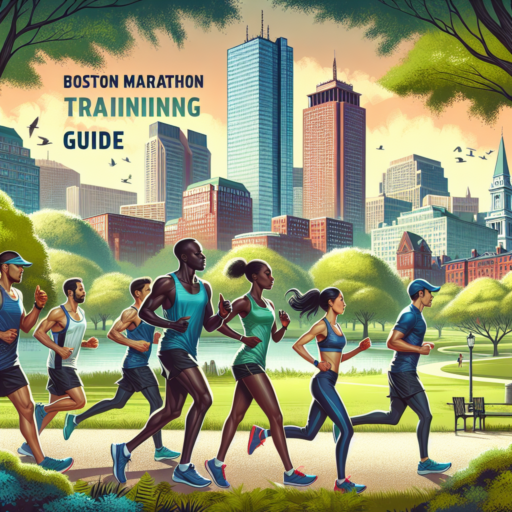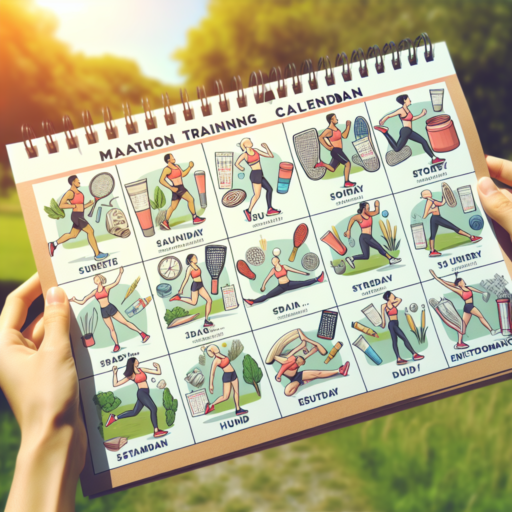How do you train for the Boston Marathon for beginners?
Training for the Boston Marathon as a beginner presents a unique challenge but an incredibly rewarding journey. Embarking on this path requires a careful approach to gradually increase your endurance, strength, and running efficiency. Below are key strategies to help beginners prepare for one of the world’s most prestigious marathons.
Understanding the Marathon Requirements
First and foremost, familiarize yourself with the qualifying times and criteria of the Boston Marathon. While beginners might initially participate in local races or smaller marathons to build experience, understanding the target helps set realistic training goals. Remember, consistent progress over time is key.
Developing a Structured Training Plan
Beginners should start by creating a structured training plan that spans several months, ideally under the guidance of a coach or a proven marathon training program. This plan should gradually increase mileage, incorporating both long runs to build endurance and shorter, faster runs to improve speed and recovery. It’s also crucial to include rest days and cross-training sessions to prevent injuries and improve overall fitness.
Incorporating proper nutrition and hydration into your training regimen cannot be overstated. Fueling your body with the right nutrients and staying hydrated will significantly impact your training efficiency and marathon performance. Beginner marathon runners should focus on consuming a balanced diet rich in carbohydrates, proteins, and healthy fats, along with ensuring adequate hydration during runs, especially on long-distance days.
When should you start training for the Boston Marathon?
Deciding when to start training for the Boston Marathon is crucial for any runner, regardless of their experience level. The ideal time frame for commencing your marathon training depends on several factors, including your current fitness level, running experience, and personal goals for the race. However, a general guideline suggests starting at least 20 weeks before the marathon date. This allows ample time for a graduated training schedule that includes building up mileage, speed work, and tapering periods.
For beginners, it’s recommended to extend the preparation time even further. Embarking on your training journey 24 to 30 weeks prior to the marathon can provide additional time to gradually increase endurance, which is vital for a challenging course like Boston’s. This extended period helps in adjusting to higher mileage training with a more conservative increase week by week, reducing the risk of injury.
Experienced runners, on the other hand, might adjust their training schedule to focus more on quality over quantity. Starting 12 to 20 weeks before the marathon, with a strong base of mileage already established, allows for a heavier emphasis on speed work, hill training, and recovery. Paying attention to your body’s needs and adjusting your training accordingly can also play a significant role in your preparation, especially in avoiding overtraining or burnout.
No se han encontrado productos.
What is a 3.5 hour marathon pace?
Completing a marathon in 3.5 hours is a commendable goal that many runners aim to achieve. This target time translates to maintaining a consistent pace throughout the 26.2-mile (42.195 kilometers) race. To complete a marathon in exactly 3.5 hours, a runner needs to maintain an average pace.
The pace for a 3.5-hour marathon is approximately 8 minutes per mile or 4 minutes and 58 seconds per kilometer. This pace needs to be consistent across each segment of the marathon, allowing for slight fluctuations due to course specifics such as elevation changes and water stops. Achieving this pace requires a mix of endurance, speed training, and perhaps most importantly, a disciplined race strategy.
To sustain a 3.5-hour marathon pace, runners often incorporate various training methods, including long runs, tempo runs, and interval training. Proper nutrition, hydration, and recovery strategies are also crucial to maintaining this pace over the course of the marathon. Preparing for the race with a tailored training plan and setting realistic pace goals for different sections of the course can help in efficiently managing energy reserves and ensuring a strong finish.
Can you run the Boston Marathon if you don’t qualify?
Participating in the iconic Boston Marathon is a dream for many runners around the world. Traditionally, entrants are required to meet rigorous qualifying times specific to their age and gender category. However, the question arises: Is it possible to run the Boston Marathon if you don’t qualify through traditional means? The answer is both surprising and encouraging for aspiring participants.
The Boston Marathon does offer alternative means for those who cannot qualify based on time. The most notable of these alternatives is through officially recognized charity programs. Every year, the Boston Athletic Association (BAA) partners with a wide range of charities. These charities receive a set number of bibs that they can distribute to runners who commit to raising a specified amount of funds for their cause. Running for a charity not only provides a unique opportunity to participate in this prestigious event but also benefits a good cause, creating a win-win scenario for all involved.
In addition to charity entries, another less known but equally valid method to participate without a qualifying time is running as a bandit. Historically, bandit runners would join the race unofficially without an official bib. While the BAA strongly discourages this practice and has tightened security measures in recent years, the phenomenon of bandit runners is a testament to the marathon’s allure and the passionate community of runners it attracts. It’s important for runners to respect the race’s policies and the effort of qualified runners by pursuing official entry methods.
Although running the Boston Marathon without qualifying might require additional effort through charity work or understanding the limitations and respecting the traditions of the race, it remains an accessible dream for many. Engaging with the marathon through these alternative routes emphasizes the communal and inclusive spirit of the Boston Marathon, beyond just the competitive aspect of the race.




